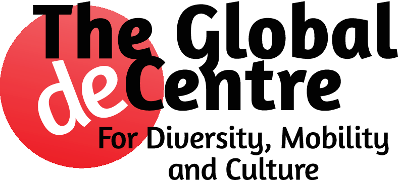DECOLONIZING DECOLONIALITY:
A VIEW FROM DIFFERENT PARTS OF THE WORLD
We hear calls from around the world to decolonize, diversify, and decenter knowledge production and dissemination. But what does this really mean in different contexts, who is participating, and whose interests are served? For the last two years, the GDC has been hosting a series of community-wide conversations about Decolonizing Decoloniality. So far, scholars from Angola, Argentina, Georgia, Indonesia, Iran, Mexico, Mozambique, Taiwan, and Ukraine have shared their experiences and practices. See the playlist of our previous conversations.
Previous conversations
Mexico – Federico Besserer (Professor of Anthropology, Autonomous Metropolitan University) and Dahil Melgar (Chief Curator, National Museum of Cultures of the World), facilitated by Peggy Levitt (Mildred Lane Kemper Chair of Sociology, Wellesley College). Recording available in Spanish (with English subtitles).
Indonesia – Sita Hidaya (Lecturer at the Department of Anthropology, Faculty of Cultural Sciences, Gadjah Mada University in Yogyakarta) and Judith Schlehe (Professor in the Institute of Social and Cultural Anthropology at the University of Freiburg), facilitated by Sanderien Verstappen (University of Vienna, Austria). Recording available in English.
Taiwan – Prof. Hongzen Wang (Distinguished Professor of Sociology, Director of the Austronesian Studies Center, and the Dean of Si Wang College at National Sun Yat-Sen University) facilitated by Ken Chih-Yan Sun, (Associate Professor at Villanova University). Recording unavailable. In English.
Mozambique and Angola – Ines Raimundo (Eduardo Mondiane University in Mozambique), Prof. Higino Lombe (Auxiliary Prof at the University of Culto Cuanavale In Angola), and Prof. Isaías Falau (Assistant Professor at the Superior Institute of Social Sciences and International Relations in Angola), facilitated by Alvaro Lima, Research Director at the Boston Planning and Development Agency. Recording available in Portuguese and English (with subtitles).
Argentina – Máximo Badaró and Silvina Merenson (EIDAES UNSAM/CONICET), facilitated by Patricia Lepratti (IDES-UNGS), Luciana Denardi (UNSAM/CONICET), and Ezequiel Saferstein (UNSAM/CONICET). Recording available in Spanish (with English subtitles).
In the Archives – François Dansereau (Director of The Archive of the Jesuits in Canada and a Course Lecturer at the McGill University School of Information Studies) and Bérengère Piret (professor of contemporary history and archival science at the UCLouvain and archivist at the Archives de l’Etat in Belgium), facilitated by Nora El Qadim (University Paris 8 and Institut universitaire de France). Recording unavailable.
Perspectives from Ukraine and Georgia – Olena Palko (University of Basel) and Ketevan Gurchiani (Research Center for Anthropology, Ilia State University in Tbilisi, Georgia), facilitated by Masha Cerovic (Center for Russian, Eastern-European, Caucasian and Central Asian Studies at the School for Advanced Studies in the Social Sciences (EHESS) in Paris). Recording available in English.
Parallel Academia in Iran: Resistance or Reproduction of Center? – Elham Shahsavar Zadeh (York University, Toronto, Canada) and Anahi Alviso-Marino (French Research Centre of the Arabian Peninsula (CEFREPA) in Kuwait and the French Institute for the Near East (IFPO) Jordan). Recording unavailable.

